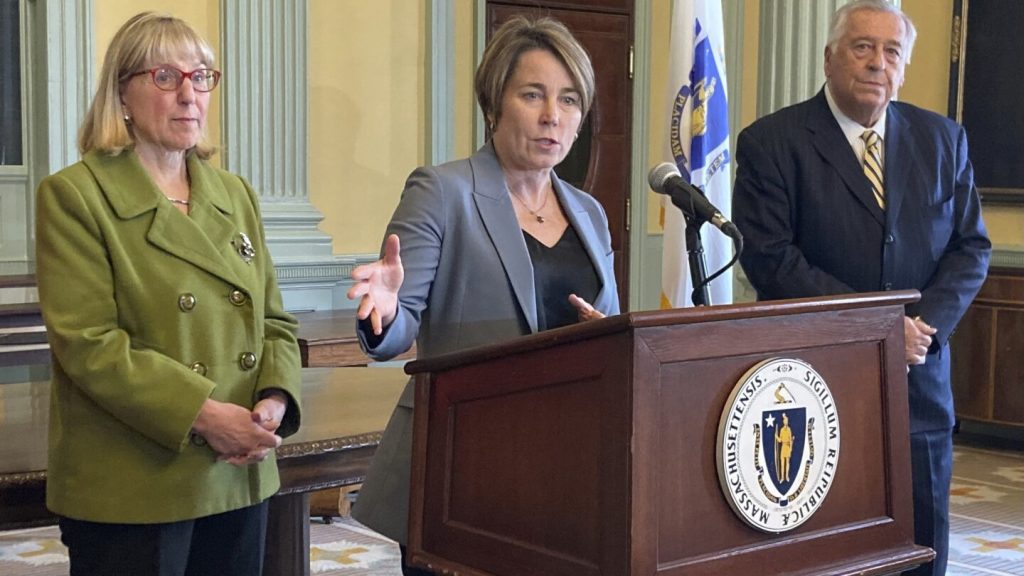Massachusetts Governor Maura Healey has announced that families staying in overflow shelter sites in the state will now have to document their efforts to find a path out of the overflow system on a monthly basis. Starting May 1, families will need to show steps they’ve taken towards independence, such as applying for work authorization permits, participating in workforce training programs, submitting job applications, taking English classes, or searching for housing. Healey stated that this requirement is important for accountability and to divert people from the emergency shelter system.
However, immigrant advocates are concerned that these new regulations will add unnecessary hurdles for homeless migrants who are already struggling to leave the shelter system. They worry that the monthly recertification process may create confusion and potentially lead to more families becoming homeless. Elizabeth Sweet of the Massachusetts Immigrant and Refugee Advocacy Coalition suggested that state and federal officials should focus on providing resources to community service organizations to support arrivals in pursuing work authorization, long-term housing, and case management services.
The state of Massachusetts has been facing challenges with the increasing number of homeless migrant families seeking shelter. The Emergency Assistance family shelter system is designed for homeless families with children or pregnant women, with less than half of families being new arrivals to the state. Last fall, the administration announced that the system could no longer expand responsibly and set up a waiting list. Currently, about 200 families are staying in the state’s overflow or safety-net sites, with a new site expected to open in Chelsea to accommodate approximately 100 families.
In response to the migrant crisis, the Massachusetts Senate recently approved limits on how long homeless families can stay in emergency state shelters as part of an $850 million plan to fund the system. The bill passed by the Senate sets a maximum stay of nine months with a possible extension of 90 days for certain categories, such as veterans, pregnant women, and those employed or in job training programs. Currently, there are no limits on the time families can spend in emergency housing. The House has also passed a bill providing funding for the system until 2025, and the two bills are expected to go to a conference committee for a compromise before heading to Governor Healey’s desk for approval.
The new regulations announced by Governor Healey do not apply to sites operated by the United Way of Massachusetts Bay, which is a charitable organization. This exemption may provide some relief for families at these sites, as they won’t have to go through the monthly recertification process. By requiring families at state-run overflow sites to show efforts towards self-sufficiency, the administration hopes to manage the shelter system responsibly and promote accountability among residents. While some individuals may have legitimate reasons for not meeting the requirements, those who are not making an effort may risk losing their spot in the shelter system.


